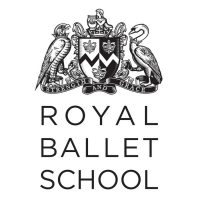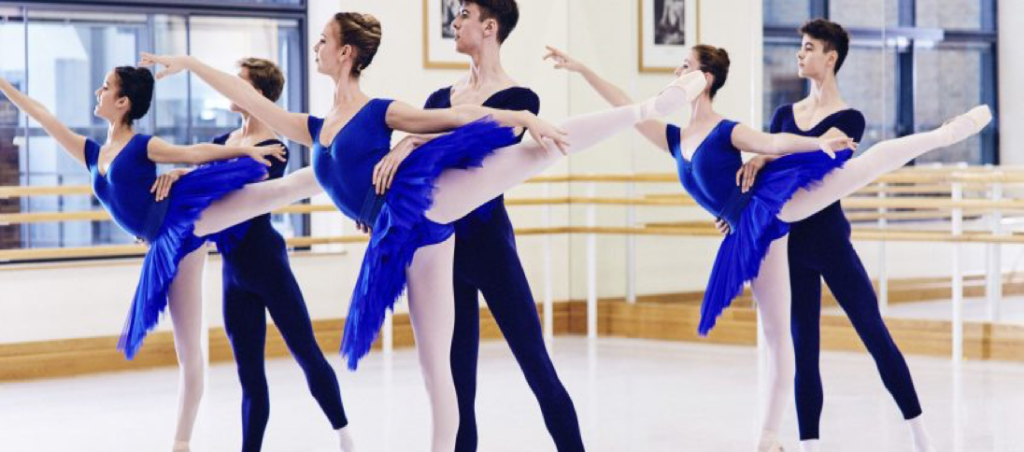The Royal Ballet School Audition
Domů / THE ROYAL BALLET SCHOOL Audition
The Royal Ballet School Audition 2023 – EN
We are happy to announce, that The Royal Ballet School Audition will be happening on November 26th, 2023 in Brno, Czech Republic.
To take part in this audition, please fill in this application form including photographs.
Successful participants from Brno will be invited to either submit a video for a semi-final audition or attend the final audition in London in February or March 2024 depending on the age group. You will be contacted by e-mail with your results shortly following the preliminary audition.
One day prior the audition on November 25, Masterclasses by Nicola Tranah will be organized at the festival. The registrations for the MasterClasses will be open soon.
In case of any questions, please contact us via our contact form below or via e-mail: info@art4people.cz.
The Royal Ballet School konkurz 2023 – CZ
S radostí oznamujeme, že mezinárodní konkurz The Royal Ballet School v Londýně se bude konat 26. listopadu 2023 na BVV výstaviště Brno, ČR.
Chcete-li se přihlásit, vyplňte prosím přihlášku níže včetně požadovaných fotografií.
Úspěšní účastníci z Brna budou buď vyzváni z zaslání videa na semi-finálový konkurz, nebo pozváni na závěrečný konkurz do Londýna v únoru nebo březnu 2023 podle toho, do jaké patří věkové skupiny. Po brněnském konkurzu budete kontaktováni e -mailem s vašimi výsledky.
25. listopadu, den před konkurzem, proběhnou v rámci festivalu také MasterClasses s Nicolou Tranah. Registrace budou spuštěny již brzy.
V případě jakýchkoli dotazů nás prosím kontaktujte prostřednictvím formuláře níže nebo e-mailem: info@art4people.cz.
AUDITION DATE
AUDITION DATE
2023
AUDITION FEE
AUDITION FEE
Audition fee is non-refundable.
CAPACITY & DEADLINE
CAPACITY & DEADLINE
PREREQUISITE
PREREQUISITE
14 - 18 years old
by August 31st, 2024
All our students learn The Royal Ballet School System of Training, a style initiated by our founder Dame Ninette de Valois and developed under successive Artistic Directors.
Whether you are an Associate, full-time student or working towards a teaching diploma, you will learn The Royal Ballet School System of Training. This is an English style of classical ballet, rooted in tradition and passed down by successive teaching staff and guest teachers sourced from our alumni.
Our system of training is based on the legacy which Ninette de Valois inherited from her own teachers: Espinosa, Cecchetti, Legat and Preobrajenska.
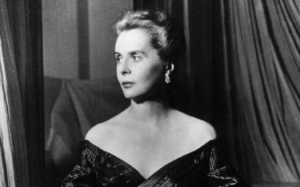
De Valois wanted England to have its own, indigenous ballet, built on the model of the old schools attached to the opera houses of Continental Europe and Russia. So, in 1926, she opened The Academy of Choreographic Art.
Our core aim remains the same today as it was in de Valois’ time: to produce dancers with a strong, clean classical technique with great emphasis on artistry, musicality, purity of line, co-ordination and a quality of movement, free of mannerisms.
We produce graduates who are capable of integrating seamlessly into The Royal Ballet, Birmingham Royal Ballet and other top professional dance companies.
Our System of Training has been developed to encompass the eight years of full-time training offered at The Royal Ballet School. It draws upon the valuable traditions from different schools of classical ballet, retaining the best that was created by our predecessors while embracing the demands of classical dance technique as is required of professional artists today.
At all times emphasis is placed on natural flow of movement, musicality, the joy of dance and the development of the dancer as an artist.
Your first step on the path to a career as a classical ballet dancer.
Classical ballet is the principal dance discipline taught at the School. The School’s own carefully constructed System of Training covering all aspects of training, from first entering the School in Year 7 to the final Upper School graduate year. It is the means by which students are prepared for a career with the world’s top dance companies.
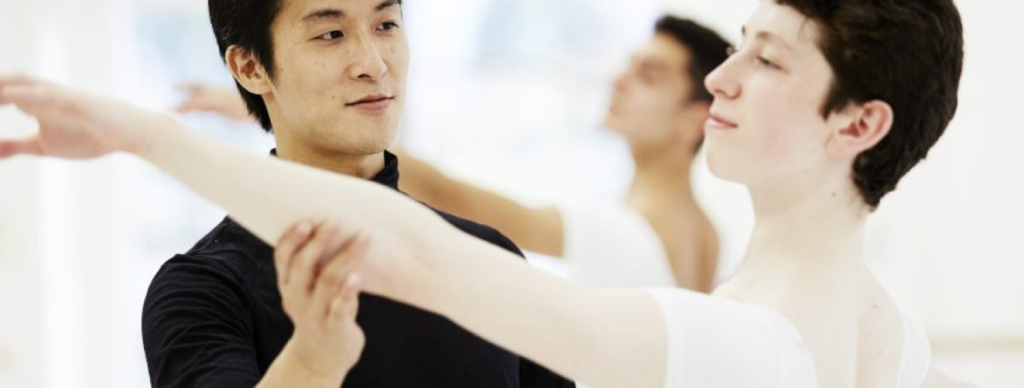
Rhythm and co-ordination are fundamental to dancers. In Year 7, young students gain a thorough grounding in their basics through Dalcroze-based techniques which internalise rhythm and timing in a physical way.
Areas of Teaching
- Classical
- Pas de deux
- Pointe work
- Character
- Contemporary
- Gymnastics
- Strength and Body Conditioning/Pilates
- Folk dances
- Choreographics
Pointe work for the girls is introduced gradually from Year 7 and evolves over the years as feet and ankles strengthen.
Body conditioning is taught to boys in Year 10 and 11 to increase strength in core stability, preparing them for the demands of pas de deux.
Pas de deux is introduced in Year 11 with supported adage. These classes are an early introduction to pas de deux, which allow young students to become familiar with the complexities of partnering.
Dance education
Full-time students of The Royal Ballet School receive a broad education, designed to give them experience of a wide range of roles within the dance sector. Students are taught choreography alongside their classical training and take part in The Creative Artist Programme, making them well-rounded artists ready to enter a competitive industry.
Become the best dancer you can be in the final years of training before joining a professional company.
During the three years of training at the Upper School, our 16 to 19-year-old students continue to work towards a career with the world’s leading dance companies.
Solos and repertoire introduce students to new and heritage works of the Royal companies. Knowledge of these ballets is essential, as students are frequently required to perform with The Royal Ballet and Birmingham Royal Ballet.
Areas of Teaching
• Classical
• Pas de deux
• Pointe work
• Variations
• Repertoire
• Character
• Contemporary
• Improvisation and Choreography
• Pilates
• Upper body programme
Character and contemporary continue to play an important part in the dance curriculum, as does pas de deux and pointe work for girls, although all become more physically demanding.
An intensive upper body programme is introduced for boys at the Upper School to enhance pas de deux training and pilates classes are added to the curriculum to strengthen core stability for all students.
Dance education
Full-time students of The Royal Ballet School receive a broad education, designed to give them experience of a wide range of roles within the dance sector. Students are taught choreography alongside their classical training and take part in The Creative Artist Programme, making them well-rounded artists ready to enter a competitive industry.
Degree course: Classical Ballet and Dance Performance
Our first ever Royal Ballet School degree programme launched in September 2017, following successful validation by the University of Roehampton. Now all students joining the Upper School are enrolled on the BA Classical Ballet and Dance Performance Degree Programme.
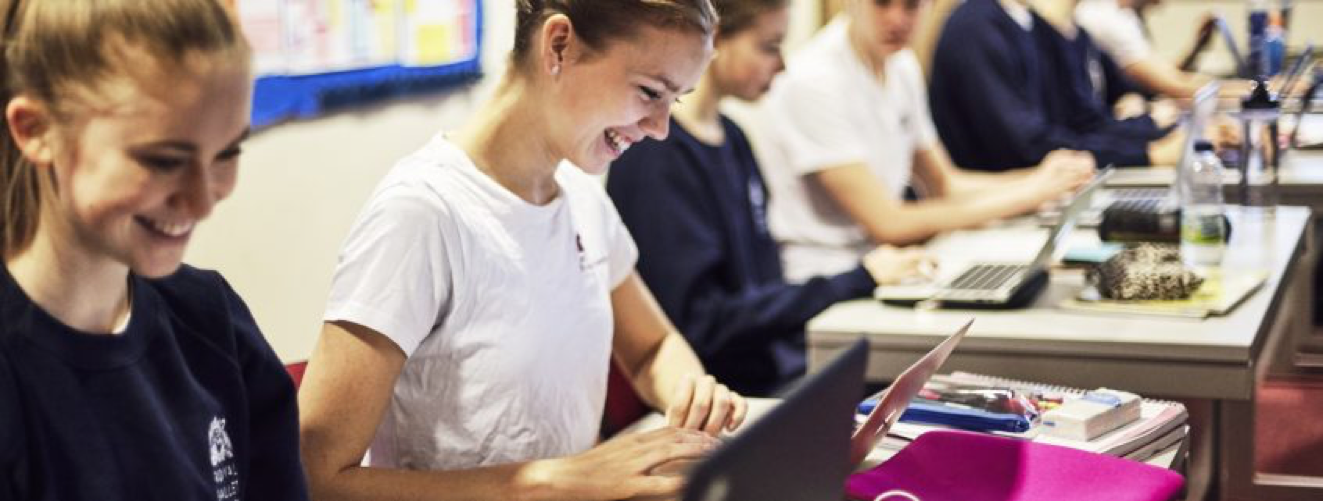
The programme is for three years with student progression dependent on individual talent and potential. Students who successfully complete the required number of credits in Years 1 and 2 but who do not progress to Year 3 will be awarded a foundation degree certificate and will be able to apply to Higher Education institutions to ‘top-up’ to a full degree. Students who successfully complete all three years of study will be awarded a BA Degree.
What makes the degree special?
The Royal Ballet School’s new degree programme is bespoke to our training and is set in the context of our rich heritage. Students have access to the School’s sports science software Smartabase, our Special Collections archive at White Lodge as well as our online Ballet History Timeline.
Modules studied
| Module Title | Degree level |
| Classical Ballet Technique | Foundation and BA |
| Performance Practice in Classical Ballet | Foundation and BA |
| Contemporary Dance Technique | Foundation and BA |
| Contemporary Context | Foundation and BA |
| Classical Context | Foundation |
| Healthy Dancer | Foundation |
| Repertoire Practice | BA |
| Performance Project | BA |
| Professional Practice | BA |
| Dissertation | BA |
Course outcomes
The degree programme contributes to creating classical ballet performers with a unique set of skills ideal for their future as a professional dancer. The programme also allows students to explore supporting studies in dance history, health and employment. It enables them to explore and engage in other areas of study they might consider after their professional dance careers.
The Royal Ballet School is situated on two sites. The junior school (Years 7-11) at White Lodge in Richmond Park and the Upper School (Years 1-3 [12 to14]) at Covent Garden.
Boarding is compulsory for Upper School Students but White Lodge students can opt to be day students providing that they live within easy travelling distance of the School.
At White Lodge the boarding accommodation is on site.
At the Upper School there are two boarding Houses both of which are off site. Aud Jebsen Hall which accommodates 1stand 2ndYear students, situated in Pimlico, and Jebsen House which accommodates 3rd Year students in Covent Garden.
White Lodge
At White Lodge boarding is organised into two Houses. The Junior House for students in Years 7 and 8 and The Senior House for Years 9, 10 and 11.
Day students
Whilst they are in a minority, every effort is made to integrate Day students fully into the Boarding Houses.
Day students may stay at School to do their prep if requested.
A mini bus service operates between White Lodge and Richmond Train Station enabling day students to travel between the two.
Upper School
First and 2nd Year Students – Aud Jebsen Hall (AJH)
The 1st and 2nd Year students are accommodated in AJH which is situated at Pimlico. The accommodation is purpose built and houses both male and female students. Rooms are shared, with same sex students living together on the same floor. Each floor has a number of communal bathroom facilities. There is an access control system in place which controls access to the dormitory areas – this ensures that only students of the same sex can access specific floors.
The House is led and managed by a Housemistress supported by an Assistant Housemistress. Both are resident on site in self-contained flats.
3rd Year students – Jebsen House
The Third Year students are accommodated at Jebsen House which is situated in Covent Garden. The House is divided into seven self-contained flats which accommodate between 2 to 6 students. The facilities in each flat include a kitchen and bathroom which the students share.
Laundry equipment is available within the kitchen of each flat. There are additional laundry facilities provided for communal use.
The House is led and managed by a Resident Senior House Assistant, supported by a Resident Teacher and Resident House Assistant.
Upper School (16-19 years)
Tuition fees | £19,509 |
| Boarding | £10,701 |
| TOTAL | £30,210 |
White Lodge (11-16 years)
| Tuition fees | £25,632 |
| Boarding | £8,943 |
| TOTAL | £34,575 |
Additional costs for parents
In addition to the fees above, parents will need to pay for uniform and the cost of travelling to and from school each half term and exeat weekends when the school is closed.
If a student requires treatment under the school’s medical insurance there is a £100 excess (each academic year) and any costs not covered by the insurance, which we will inform you about beforehand.
At White Lodge, there are additional costs for items provided to the students by the school during the year including any uniform, shoes, school trips, and any music lessons taken. These are invoiced to parents at the end of each term.
At Upper School a portion of the fees will cover daily travel, food, and some uniform and some ballet shoes.
Students from outside the UK will require a UK guardian which may involve costs for parents. Students from outside the European Economic Area or Switzerland will require a Tier 4 visa to study in the UK.
For advice on obtaining your own financial support to meet the cost of your child’s education, read our Fundraising Information sheet, which offers a variety of suggestions, including how to contact your Local Authority and applying for support from Trusts and Foundations, as well as how to write a press release.
How much would I pay under the Music and Dance Scheme?
On the School website you can find an online tool which offers you an indication of what you might need to pay if you receive a place at the School funded by the Music and Dance Scheme or a means-tested Bursary.
Means-testing is based on the household income of the parents (or parent/guardian and partner) who the student lives with. This income includes gross taxable income, plus any maintenance payments legally receivable from previous partners, and any salary sacrifice or pension contribution deductions. The pension schemes where contributions need adding back are final or average salary, superannuation or salary sacrifice schemes. Any bonuses, taxable capital gains and taxable redundancy payments are also included.
An allowance of £2,051 is deducted from income for each other child or dependent, although for a child at a UK university the 2017/18 tuition fees and rent can be deducted instead.
